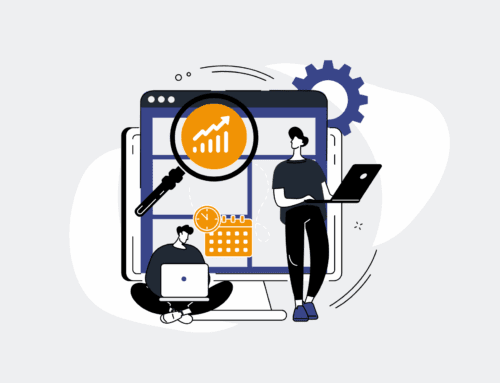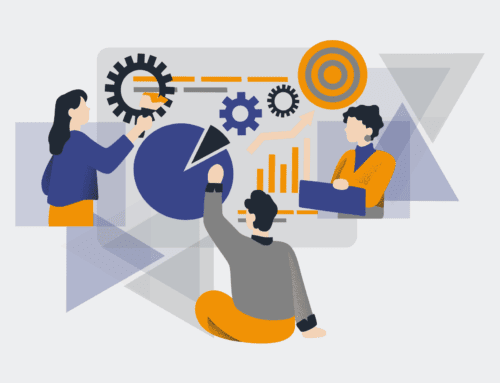From Data Entry to Data Strategy: Reshaping HR Roles with AI
For decades, human resources departments have been synonymous with mountains of paperwork, endless forms, and the tedious, yet critical, task of data entry. HR professionals, often burdened by administrative minutiae, have found their strategic potential stifled, relegated to reactive roles rather than proactive architects of an organization’s most valuable asset: its people. This paradigm is not just inefficient; it’s a bottleneck to innovation and a drain on resources. At 4Spot Consulting, we understand that for high-growth businesses, every moment spent on low-value, repetitive tasks is a moment lost for strategic advancement.
The Evolution of HR: Beyond Administrative Overload
Historically, HR’s primary function often revolved around compliance, record-keeping, and transactional processes. Hiring, onboarding, payroll, benefits administration – these are foundational, but their manual execution consumes an inordinate amount of time and is prone to human error. Consider the sheer volume of data involved in even a mid-sized company: employee records, performance reviews, training logs, compensation details, absence requests. Managing this manually doesn’t just slow things down; it actively prevents HR leaders from extracting meaningful insights that could drive business decisions, improve employee retention, or identify future talent needs.
The imperative to move beyond this administrative quagmire isn’t merely about efficiency; it’s about elevating HR to its rightful place as a strategic powerhouse. When HR teams are freed from the drudgery of inputting data, they gain the capacity to analyze it, to understand the narratives hidden within, and to forecast future trends. This shift is not just desirable; in today’s fast-paced, data-driven economy, it’s absolutely essential for competitive advantage.
AI as the Catalyst for a Strategic HR Future
Enter Artificial Intelligence. AI is not just another tool; it’s a transformative force that is fundamentally reshaping how HR operates, shifting the focus from mere data entry to sophisticated data strategy. AI algorithms can process, categorize, and analyze vast datasets far more rapidly and accurately than any human. This capability doesn’t replace the human element of HR; instead, it augments it, allowing HR professionals to leverage insights that were previously unattainable.
Imagine a scenario where resume screening, once a laborious manual task, is intelligently automated to identify top candidates based on predefined criteria, biases are reduced, and the recruitment pipeline is accelerated. Or where employee performance data, combined with engagement surveys and learning pathways, can predict flight risks or identify high-potential individuals ready for leadership roles. This isn’t science fiction; it’s the reality AI is creating in HR today. By automating the data entry and initial analysis, AI liberates HR to focus on the human-centric aspects of their roles: coaching, developing, innovating, and building a thriving organizational culture.
Practical Applications: Where AI Transforms HR Operations
Intelligent Recruitment and Onboarding
AI is revolutionizing how organizations attract, assess, and onboard talent. From AI-powered applicant tracking systems that parse resumes and identify skill matches with unprecedented accuracy, to chatbots that answer candidate FAQs 24/7, the initial stages of the talent lifecycle are becoming leaner and more effective. For onboarding, AI can personalize the experience, automating document distribution, compliance checks, and even recommending initial training modules, ensuring new hires feel supported and productive from day one.
Predictive Analytics for Talent Management
Beyond recruitment, AI’s analytical prowess offers deep insights into existing talent. By analyzing historical performance data, learning engagement, and even communication patterns, AI can help predict employee turnover, identify skills gaps before they become critical, and suggest personalized development plans. This proactive approach allows HR to strategically invest in their workforce, foster growth, and build a resilient talent pool, moving from reactive problem-solving to proactive talent cultivation.
Enhanced Employee Experience and Engagement
AI-driven tools can provide personalized employee experiences, from automated responses to common HR queries to intelligent recommendations for career development or wellness programs. By understanding individual needs and preferences through data, HR can tailor support and and engagement initiatives, fostering a more connected, satisfied, and productive workforce. This significantly boosts employee retention and overall job satisfaction, turning HR into a true advocate for individual growth within the company.
The New HR Professional: Strategist, Analyst, Innovator
The shift from data entry to data strategy fundamentally redefines the HR professional’s role. No longer are they merely administrators; they are strategic advisors, data scientists, and change agents. This requires a new set of skills: an understanding of data analytics, critical thinking, ethical AI application, and a heightened focus on human-centric design. HR leaders will be empowered to make data-backed decisions on talent allocation, organizational design, compensation strategies, and future workforce planning. This elevates HR from a cost center to a vital profit driver, directly impacting the bottom line through optimized human capital.
Partnering for the Future: 4Spot Consulting’s Approach to AI in HR
At 4Spot Consulting, we specialize in helping high-growth B2B companies like yours navigate this transformative journey. Our expertise in low-code automation and AI integration is designed to eliminate human error, reduce operational costs, and significantly increase scalability, saving you up to 25% of your day. We don’t just implement technology; we apply our OpsMap™ framework to strategically audit your current inefficiencies, uncover automation opportunities, and build bespoke AI-powered solutions that deliver tangible ROI.
Whether it’s streamlining your recruiting pipeline with intelligent automation, optimizing talent management through predictive analytics, or creating a single source of truth for your HR data, our goal is to empower your HR team to move from manual tasks to meaningful strategy. We help you transform your HR department from a data processing unit into a strategic intelligence hub, ready to drive your organization’s success in the AI era.
If you would like to read more, we recommend this article: The Future of Talent Acquisition: A Human-Centric AI Approach for Strategic Growth







